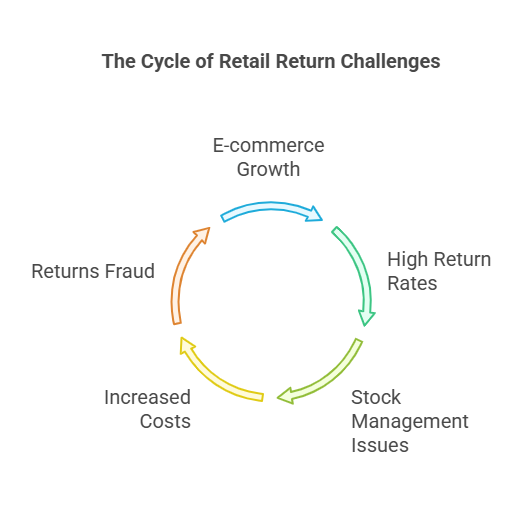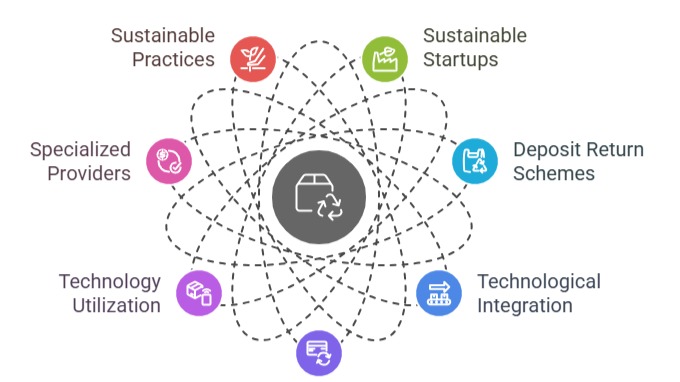
Turning Returns into Revenue: Managing Returns and Reverse Logistics
In today's dynamic retail environment, managing returns and reverse logistics has become a critical component of supply chain management, especially for small and medium-sized businesses (SMBs) operating in the UK and EU markets. The surge in e-commerce has led to increased return rates, presenting both challenges and opportunities for vendors aiming to optimize their operations and maintain profitability.

The Growing Challenge of Returns
Recent data indicates that in the UK, serial returners are expected to send back £6.6 billion worth of online purchases this year, with each individual returning an average of £1,400 in goods. This behavior complicates stock management and escalates costs for retailers.
Additionally, returns fraud has become a significant concern, with the UK sector losing £11.3 billion in 2023 due to fraudulent activities.
A staggering 91% of UK retailers have reported an increase in returns fraud over the past year, further straining reverse logistics processes.
Innovative Solutions in Reverse Logistics

To address these challenges, companies are implementing innovative strategies to manage returns more effectively:
Strategies for SMBs
For SMBs aiming to navigate the complexities of returns and reverse logistics, the following strategies can be effective:
At EcomXpert, we understand the unique challenges that SMBs face in managing returns and reverse logistics. Our tailored solutions are designed to enhance efficiency, reduce costs, and promote sustainability within your supply chain.
By partnering with us, you can transform returns management from a logistical challenge into a strategic advantage, ensuring your business thrives in the competitive UK and EU markets.
Incorporating effective reverse logistics strategies is not just about managing returns—it's about seizing opportunities to improve customer satisfaction, operational efficiency, and environmental responsibility. Let EcomXpert guide you in turning these challenges into avenues for growth and success.
Write a comment